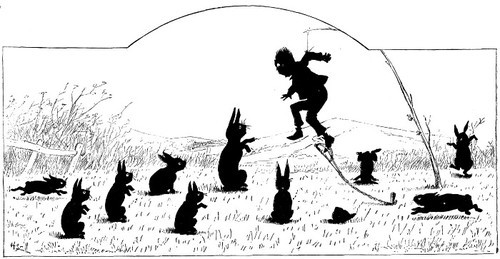The bees
will arrive
and try
to be sensitive
again
to our needs.
Category Archives: Uncategorized
Be it remembred that where, on the nyght next biforne the feste of the Circumcision of owre Lord Jesu, the [second]12.2 yeer of the regne of Kyng Henry the Sexte, certeyns maffaisours, felons, and brekeres of the kynges peas vnknowyn, to the noumbre of iiijxx [four score] and more by estimacion, of malice and imaginacion forne thowght felonowsly, the dwellyng place of John Grys of Wyghton, in Wyghton, in the shyre of Norffolk, brokyn, and with carpenteres axes the yates and the dores of the seyd place hewen, and the seyd John Grys, and hys sone, and a servaunt man of hese by here bodyes tokyn, and fro the seyd dwellyng place by the space of a myle to a payre gawles ledden, there hem for to have hangyd; and by cause hem fayled ropes convenient to here felonowse purpos, the seyd John Grys, hese sone, and hys man there felonowsely slowen and mordered in the most orrible wyse that ever was herd spoken of in that cuntre.
Via theparisreview:
Geoff Dyer’s ten rules for writing fiction
1 Never worry about the commercial possibilities of a project. That stuff is for agents and editors to fret over—or not. Conversation with my American publisher. Me: “I’m writing a book so boring, of such limited commercial appeal, that if you publish it, it will probably cost you your job.” Publisher: “That’s exactly what makes me want to stay in my job.”
2 Don’t write in public places. In the early 1990s I went to live in Paris. The usual writerly reasons: back then, if you were caught writing in a pub in England, you could get your head kicked in, whereas in Paris,dans les cafés … Since then I’ve developed an aversion to writing in public. I now think it should be done only in private, like any other lavatorial activity.
3 Don’t be one of those writers who sentence themselves to a lifetime of sucking up to Nabokov.
4 If you use a computer, constantly refine and expand your autocorrect settings. The only reason I stay loyal to my piece-of-shit computer is that I have invested so much ingenuity into building one of the great auto-correct files in literary history. Perfectly formed and spelt words emerge from a few brief keystrokes: “Niet” becomes “Nietzsche,” “phoy” becomes “photography” and so on. Genius!
5 Keep a diary. The biggest regret of my writing life is that I have never kept a journal or a diary.
6 Have regrets. They are fuel. On the page they flare into desire.
7 Have more than one idea on the go at any one time. If it’s a choice between writing a book and doing nothing I will always choose the latter. It’s only if I have an idea for two books that I choose one rather than the other. I always have to feel that I’m bunking off from something.
8 Beware of clichés. Not just the clichés that Martin Amis is at war with. There are clichés of response as well as expression. There are clichés of observation and of thought—even of conception. Many novels, even quite a few adequately written ones, are clichés of form which conform to clichés of expectation.
9 Do it every day. Make a habit of putting your observations into words and gradually this will become instinct. This is the most important rule of all and, naturally, I don’t follow it.
10 Never ride a bike with the brakes on. If something is proving too difficult, give up and do something else. Try to live without resort to perseverance. But writing is all about perseverance. You’ve got to stick at it. In my 30s I used to go to the gym even though I hated it. The purpose of going to the gym was to postpone the day when I would stop going. That’s what writing is to me: a way of postponing the day when I won’t do it any more, the day when I will sink into a depression so profound it will be indistinguishable from perfect bliss.
(via)
Erotika biblion, Mirabeau
“Reverse Side Of a Painting,” Cornelis Gysbrechts, 1670.

There is no belief. There is no knowledge. Faith and reason are irrelevant. I have no use for certainty or doubt. Instead, I craft my own relationships to the concepts I encounter.
“But as timorous and raw sailors in a boat, when they grow sick with the working of the waves, think they shall overcome their pukings if they go on board of a ship, but there being equally out of order, go into a galley, but are therefore never the better, because they carry their nauseousness and fear along with them; so the several changes of life do only shift and not wholly extirpate the causes of our trouble. And these are only our want of experience, the weakness of our judgment, and a certain impotence of mind which hinders us from making a right use of what we enjoy.”
Ventral view of Eutyphoeus masoni. p papillae, ♂ male pores, ♀ oviduct pores. (× 3.)

Rabbits

Karnama-i ‘Ishq (Book of affairs of love)

Source: http://britishlibrary.typepad.co.uk/asian-and-african/2013/07/book-of-affairs-of-love.html
